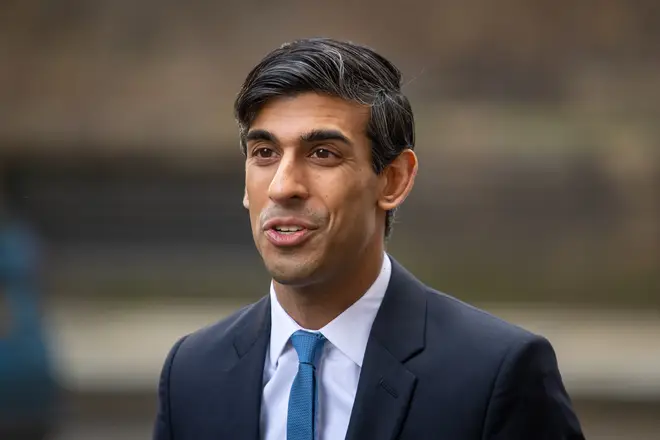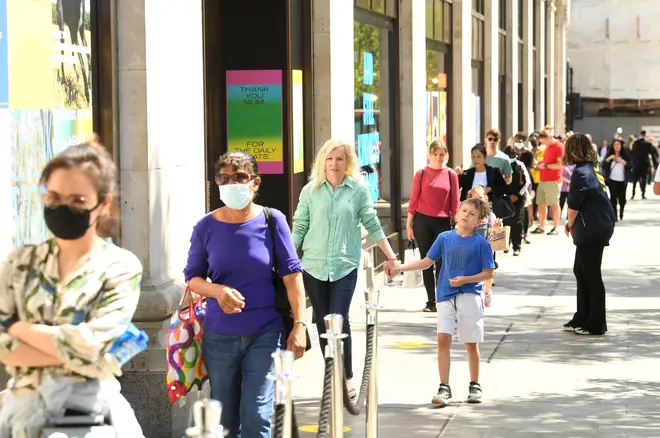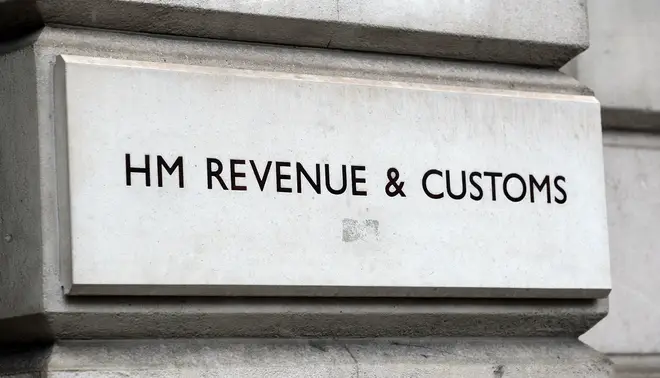
Ian Payne 4am - 7am
1 July 2020, 20:06

Today is the first day businesses are able to start bringing staff back part-time who have been furloughed under the Government's coronavirus jobs protection scheme.
Firms will be able to decide which employees they bring back and what hours they do, while paying the wages for the time they work.
The move comes as the Treasury is preparing to wind down the scheme - which has seen the state pay up to 80% of workers' wages.
From August, employers will have to start contributing to their staff wages again, prompting fears of mass lay-offs if firms still lack the cash to pay them.
According to the latest figures from the Treasury, more than 9.3 million jobs have been protected under the scheme at a cost of £25.5 billion to the taxpayer.
But who will the changes impact upon? And will wages be affected?

In a change to the previous rules set be the Chancellor, staff can now work for a company whilst also being on on furlough leave for the same company.
Previously, anyone on furlough could not work any hours for their employer.
People also no longer have to be furloughed every three weeks, and can be brought back to work at any time for some or all of a working week.

From July 1, bosses can decide to bring back any furloughed workers for any amount of time and still claim furloughed pay when they are not working.
It means that anyone who has been on furlough could be heading back from today for at least some of the week.
There's no limit on the number of hours you can work.
For example, if you work a 40-hour week and your employer wants to, it can get you to work 39 hours and then furlough you for the remaining hour.
The amount of time you work each week can also vary over the month, with employers varying it week by week.
To be eligible for the furlough scheme from July, workers must have been furloughed for at least three consecutive weeks between May 1 and June 30.
They must also have already been enrolled on the scheme before June 10, which is when the chancellor closed it to all new applicants.

UK chancellor extends furlough scheme for four months
The government promised to cover 80 per cent of a worker's salary up to a cap of £2,500 each month, and this will still be the case in July if someone is furloughed.
However, from 1 July, employers can claim for any amount of time, but they can only receive the money in seven-day blocks.
When you are working as normal, your employer will be responsible for paying your wages.
For some customer-facing workers who are paid per client, such as hairdressers, the workplace restrictions imposed because of coronavirus might mean reduced customer footfall when they actually restart work.
Workers cannot claim furlough pay for hours of work they 'lost' through being at work but having to make the workplace covid-safe, rather than seeing clients, for example.
As is the case over the last three months, an employer can choose to top-up payments so that employees are paid their full monthly wage, although they do not have to.
July will be the last month that the government covers employer contributions, such as National Insurance and pension contributions.
From August, the government will pay 80 per cent of wages up to a cap of £2,500 for the hours an employee is on furlough and employers will have to pay the extra contributions for that time.
Then from September, the amount the government pays will drop to 70 per cent of wages up to a cap of £2,187.50, with employers meeting the difference to bring the pay up to 80 per cent of wages.
In October, the government contribution will reduce again, to 60 per cent of wages up to a cap of £1,875 for the hours the employee is on furlough.
Again, companies will need to pay workers so that they receive at least 80 per cent of their normal wage.
At the end of October, the furlough scheme will end completely, chancellor Rishi Sunak has said.

Chancellor Rishi Sunak says firms will be asked to make furlough contributions from August
Chancellor Rishi Sunak said: "Our number one priority has always been to protect jobs and businesses through this outbreak.
"The furlough scheme, which will have been open for eight months by October, has been a lifeline for millions of people and as our economy reopens we want that support to continue.
"Giving firms the flexibility to bring back furloughed workers on a part-time basis will help them work gradually and help them plan for the months ahead."
Business Secretary Alok Sharma also showed his support for the scheme, and said the best way to support jobs is to reopen the economy.
He said: "The support in the job retention scheme is being provided until October.
"But the best way of providing support for business is to open up the economy, and we have been doing that in a phased and cautious manner."
Mr Sharma echoed the Prime Minister's declaration that he is "not a communist" despite the state intervention promised by Boris Johnson on Tuesday.
"I am not a communist, I am what the Prime Minister is, which is a one-nation Conservative."